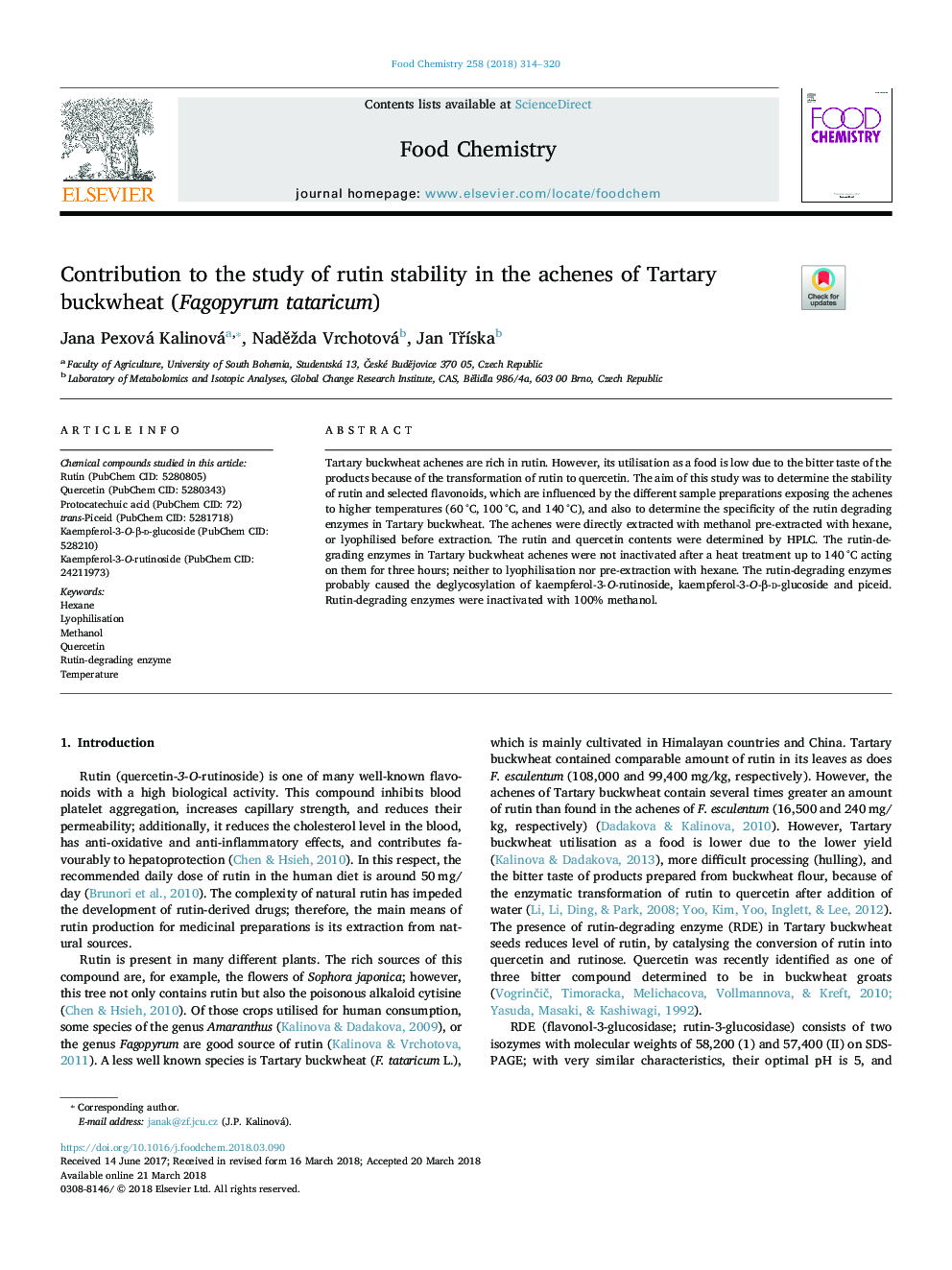| Article ID | Journal | Published Year | Pages | File Type |
|---|---|---|---|---|
| 7585223 | Food Chemistry | 2018 | 7 Pages |
Abstract
Tartary buckwheat achenes are rich in rutin. However, its utilisation as a food is low due to the bitter taste of the products because of the transformation of rutin to quercetin. The aim of this study was to determine the stability of rutin and selected flavonoids, which are influenced by the different sample preparations exposing the achenes to higher temperatures (60â¯Â°C, 100â¯Â°C, and 140â¯Â°C), and also to determine the specificity of the rutin degrading enzymes in Tartary buckwheat. The achenes were directly extracted with methanol pre-extracted with hexane, or lyophilised before extraction. The rutin and quercetin contents were determined by HPLC. The rutin-degrading enzymes in Tartary buckwheat achenes were not inactivated after a heat treatment up to 140â¯Â°C acting on them for three hours; neither to lyophilisation nor pre-extraction with hexane. The rutin-degrading enzymes probably caused the deglycosylation of kaempferol-3-O-rutinoside, kaempferol-3-O-β-d-glucoside and piceid. Rutin-degrading enzymes were inactivated with 100% methanol.
Keywords
Related Topics
Physical Sciences and Engineering
Chemistry
Analytical Chemistry
Authors
Jana Pexová Kalinová, NadÄžda Vrchotová, Jan TÅÃska,
